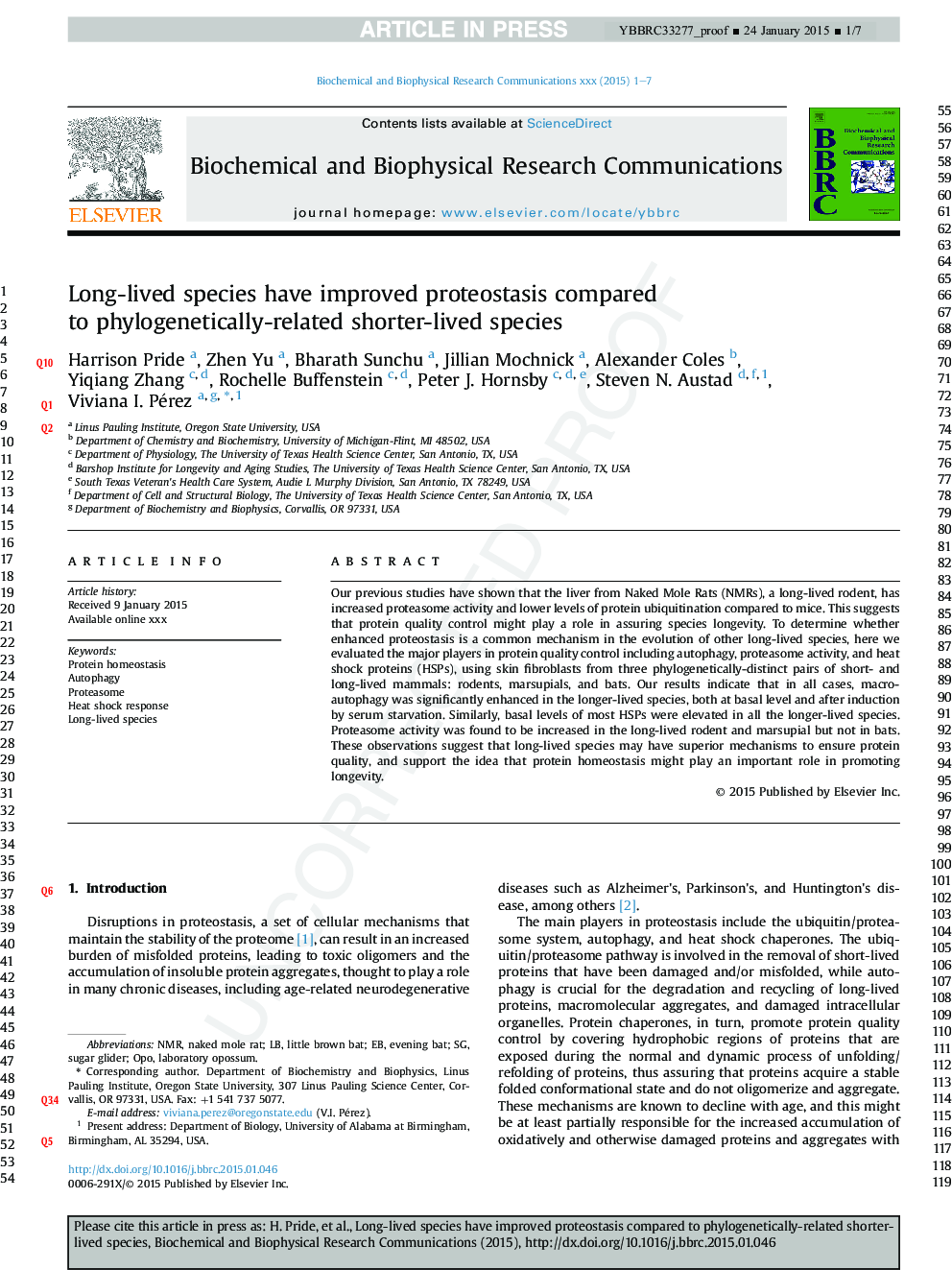| Article ID | Journal | Published Year | Pages | File Type |
|---|---|---|---|---|
| 10752576 | Biochemical and Biophysical Research Communications | 2015 | 7 Pages |
Abstract
Our previous studies have shown that the liver from Naked Mole Rats (NMRs), a long-lived rodent, has increased proteasome activity and lower levels of protein ubiquitination compared to mice. This suggests that protein quality control might play a role in assuring species longevity. To determine whether enhanced proteostasis is a common mechanism in the evolution of other long-lived species, here we evaluated the major players in protein quality control including autophagy, proteasome activity, and heat shock proteins (HSPs), using skin fibroblasts from three phylogenetically-distinct pairs of short- and long-lived mammals: rodents, marsupials, and bats. Our results indicate that in all cases, macroautophagy was significantly enhanced in the longer-lived species, both at basal level and after induction by serum starvation. Similarly, basal levels of most HSPs were elevated in all the longer-lived species. Proteasome activity was found to be increased in the long-lived rodent and marsupial but not in bats. These observations suggest that long-lived species may have superior mechanisms to ensure protein quality, and support the idea that protein homeostasis might play an important role in promoting longevity.
Keywords
Related Topics
Life Sciences
Biochemistry, Genetics and Molecular Biology
Biochemistry
Authors
Harrison Pride, Zhen Yu, Bharath Sunchu, Jillian Mochnick, Alexander Coles, Yiqiang Zhang, Rochelle Buffenstein, Peter J. Hornsby, Steven N. Austad, Viviana I. Pérez,
